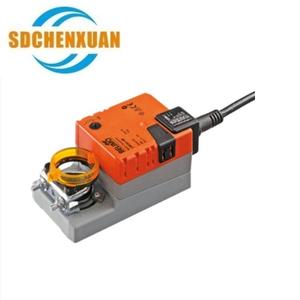In heating, ventilation and air conditioning (HVAC) systems, actuators are a vital component. They play an important role in ensuring the stable operation of the system and efficient energy utilization. This article will explore the role and importance of actuators in HVAC systems.

What is an actuator?
First, let's understand what an actuator is. Simply put, an actuator is a drive mechanism used to convert electrical signals or other energy sources into mechanical motion. In HVAC systems, actuators are usually connected to devices such as valves, fans, compressors, etc., and drive these devices to adjust the operating status of the system.
In HVAC systems, the main functions of actuators include the following aspects:
Control flow: Actuators can drive valves to regulate the flow of water, air or refrigerant. By controlling the flow rate, precise control of the system's temperature, humidity and air quality can be achieved.
Regulating temperature: The actuator can drive a radiator or condenser fan to control indoor temperature by regulating air flow. In cooling or heating mode, the actuator ensures that the system works according to the set temperature requirements.
Ventilation and air quality: The actuator can control ventilation fans to introduce fresh outdoor air into the room and discharge dirty indoor air at the same time. This is critical to maintaining indoor air quality and comfort.
Monitoring and safety: The actuator can be integrated with sensors and other monitoring equipment to realize automatic monitoring and safety protection functions of the system. For example, when an abnormality occurs in the system, the actuator can automatically close the valve or activate the alarm device to ensure the safe operation of the system.
In addition to the functions mentioned above, actuators have a variety of other applications. For example, they can be used to control parameters such as humidity, pressure and airflow distribution. As technology continues to advance, the performance and functionality of actuators are also constantly improving. New actuator designs are more efficient and precise, further improving HVAC system performance and energy efficiency.
To summarize, actuators play a vital role in HVAC systems. They are key factors to ensure stable system operation, precise control and energy saving. As HVAC technology continues to develop, the applications of actuators will become more extensive and diversified. By selecting appropriate system configurations and high-quality actuators, we can improve the performance and reliability of HVAC systems and create a more comfortable and energy-saving indoor environment for people.